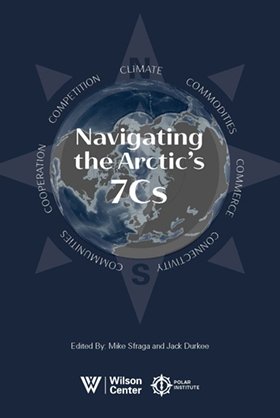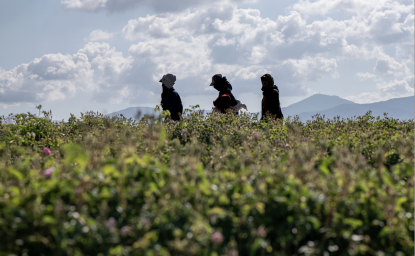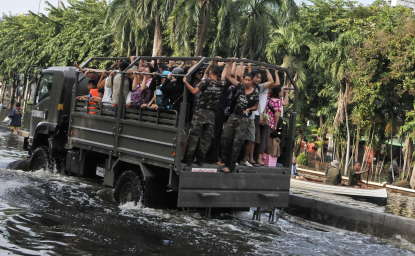Navigating the Arctic's 7 Cs


The Arctic has evolved from the perception of a cold, dark, remote, isolated, and disconnected region to a new, interconnected, increasingly consequential, and globalized Arctic. But why has the Arctic become the topic of an ever-increasing number of news stories, documentaries, and Congressional hearings? How can we better frame the issues for U.S. lawmakers in a way that advances a whole-of-government approach to the region?
Reflecting on these questions, Mike Sfraga considered seven key issues and drivers at play in today’s Arctic: climate, commodities, commerce, connectivity, communities, cooperation, and competition. It became clear that how effectively the United States, and indeed all Arctic and non-Arctic nations, navigate these 7 Cs would determine the future of the Arctic. Individually they capture key areas for further policy discussion and implementation. In aggregate, they create an integrated group of seven “buckets” that can inform and influence policymakers in the United States and abroad.
As Wilson Center Director, President, and CEO Ambassador Mark Green notes, “Navigating the Arctic’s 7 Cs will advance our conceptual understanding of the Arctic and, I am confident, lead to more effective solutions to the challenges evident there. This framework breaks down the nuances of specific issues and puts forward a frame-of-mind within which to consider the Arctic. Navigating the Arctic’s 7 Cs is a guide to the Arctic, a roadmap to better understanding and a more informed approach for stakeholders looking northward.”
This monograph features the insights and expertise of leading experts in their fields: Dr. Mike Sfraga, Dr. Brendan Kelly, Ms. Elizabeth Francis, Dr. Mark Myers, Dr. Lawson Brigham, Dr. Alyson Azzara, Dr. Gwen Healey Akearok, Ambassador David Balton, Dr. Stacy Closson, and Mr. Jim Townsend.
Editors

US Ambassador-at-Large for Arctic Affairs; Former Chair, US Arctic Research Commission


Polar Institute
Since its inception in 2017, the Polar Institute has become a premier forum for discussion and policy analysis of Arctic and Antarctic issues, and is known in Washington, DC and elsewhere as the Arctic Public Square. The Institute holistically studies the central policy issues facing these regions—with an emphasis on Arctic governance, climate change, economic development, scientific research, security, and Indigenous communities—and communicates trusted analysis to policymakers and other stakeholders. Read more

Explore More
Browse Insights & Analysis
Can Climate-Resilient Agriculture Become an Engine for Syria’s Post-Conflict Recovery?

ECSP Weekly Watch | March 10 – 14

ECSP Weekly Watch | February 17 – 21
